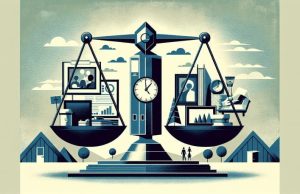The world of automotive manufacturing faces an unprecedented upheaval as President Trumps administration enacts a sweeping 25% tariff on non-U.S. manufactured vehicles. This move aims to bolster American industry, but its rippling effects are felt most profoundly in Asia, where automotive giants like Toyota are bracing for transformational challenges.
For decades, Toyota has symbolized efficiency coupled with cutting-edge technology, earning it top spots in global automotive sales. Yet, with these new tariffs in place, the landscape is rapidly shifting. The tariffs are poised not only to affect bottom lines but also to drive strategic re-evaluations that may redefine industry alliances and operational geographies.
To understand the gravity of the situation, it’s essential to consider the intricate web of global supply chains. Asian automakers like Toyota have long relied on this network to optimize production costs and deliver value. However, with the tariff-induced price hikes, the cost-benefit calculus of importing vehicles into the U.S. market now presents a formidable challenge.
The immediate question for these industry titans is whether to absorb the tariff costs, thus reducing profit margins, or to pass them onto consumers, risking reduced competitiveness in a price-sensitive market. At the same time, some companies are considering manufacturing shifts; investing in or expanding U.S.-based operations could present a viable, though complex, solution to circumvent these tariffs.
Moreover, these tariffs could inadvertently spur innovation. Facing increased operational costs, automakers might intensify their focus on technological advancements, exploring ways to streamline production or fast-track the development of alternative fuel and electric vehicles, sectors where consumer demand is burgeoning.
Toyota, alongside its Asian counterparts, stands at a pivotal juncture. The choices they make in response to these tariffs could redefine their approach to both the North American and global markets. It is a moment that calls not just for strategic pivots but also for a visionary embrace of change, potentially setting the stage for a new era in automotive manufacturing.
In this evolving narrative, transparency, adaptability, and bold innovation will be key attributes. As industry observers, consumers, and stakeholders, we collectively witness how these tariffs could inadvertently act as a catalyst for transformation, propelling Asian automakers into uncharted territories of growth and technological evolution.


























